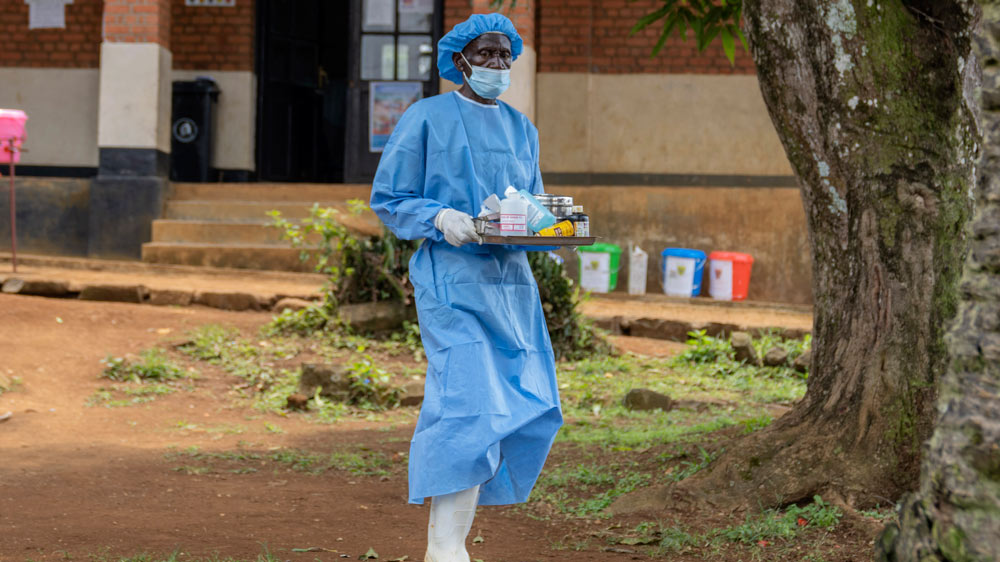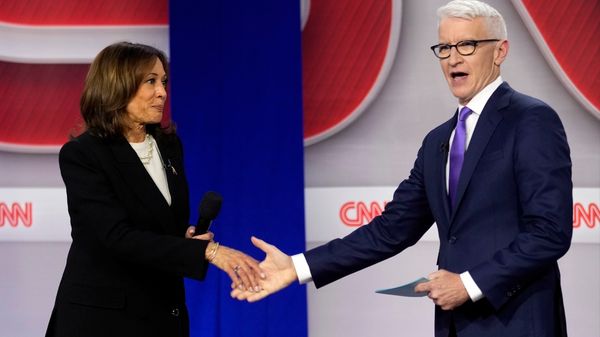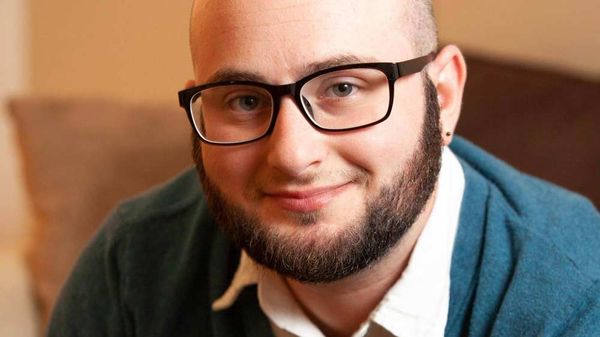November 21, 2007
SpeakOut to keep speaking
Michael Wood READ TIME: 7 MIN.
The board of directors of SpeakOut met Nov. 14 to consider a motion put forward by board co-chair Bernadette Smith to dissolve the organization, which was founded in 1972 as the Gay Speakers Bureau and purports to be the world's first LGBT speaker's bureau. In recent years, debt, decreasing revenues and difficulties retaining board members and volunteers have plagued the organization. Smith originally made the motion in the hopes of finding another organization that could absorb SpeakOut as one of its programs. At least three of the seven board members said they had planned at the start of the meeting to vote to dissolve SpeakOut. But after hearing impassioned pleas during the meeting from current and former volunteers, as well as from SpeakOut co-founder David Peterson, the board voted 5-1, with one abstention, to keep the organization going.
Following the vote the board scheduled a four-hour public meeting on Nov. 27 to develop an emergency strategic plan to get SpeakOut back on its feet. While the organization has undertaken yearlong or multi-year strategic plans in the past, several board members said the new plan should focus on a set of clearly defined goals for the organization to meet over a period of a few months. If the board and volunteers are unable to create a sustainable business plan for the organization at the end of that period, the board will reconsider dissolving the organization.
During the board-meeting co-chair Don Frattaroll argued against petitioning another organization to absorb SpeakOut, saying the speaker's bureau would lose the qualities that make it distinctive. SpeakOut volunteers talk to classrooms and other audiences about their own experiences coming out and living as LGBT people, and they answer questions about LGBT issues and what it means to be LGBT.
"I would argue that there isn't any other group that can do it like SpeakOut can. ... I am willing and personally dedicated to turning it around," said Frattaroll.
Jane Bergman, the lone board member who voted to dissolve, said that she does not believe SpeakOut's business model is sustainable.
"To me it absolutely comes down to the financial bottom line and if there is a business prospect," said Bergman.
One of the central difficulties faced by SpeakOut is that the organization makes the majority of its revenue through speaking fees, but there are fewer high schools and universities willing to pay for LGBT speakers. Smith said SpeakOut books most of its speaking engagements through personal relationships that board members and speakers have with teachers and staff members at schools, and 70 percent of their clients hire the organization for future speaking engagements. But the funds from those engagements have fallen short of the expenses needed to run the organization. From Sept. 29 through Nov. 14 SpeakOut collected $925 in engagement fees; over that same period the organization's expenses totaled $3300.
Part of the reason for the drop in demand for speakers is that SpeakOut is no longer the only source in the Boston area for LGBT speakers, and it is one of the few that charges money. SpeakOut's administrative director, Jaclyn Jones, explained that over the summer she reached out to colleges and universities throughout the area to promote SpeakOut's services, sending letters and calling admissions offices, residential life departments and career centers at the schools. The effort yielded just one new speaking engagement and several statements of interest in SpeakOut's services. But Jones said other schools told her they have no need for paid speakers. Administrators at Wheelock said they have their own in-house LGBT speaking program, and MIT said all of its LGBT programming comes from the school's LGBT office.
Treasurer Shane O'Brien said that between Sept. 29 and the day of the meeting SpeakOut's net ordinary income was about $388, the lowest it has been in the organization's history.
Declining revenues isn't the only fiscal challenge the organization is facing. SpeakOut currently owes the IRS more than $4000, a combination of payroll taxes and one late filing fee. The organization also owes the Boston Neighborhood Network (BNN) about $1800 for airtime for its weekly public access show, SpeakOut TV. Frattaroll said BNN has taken SpeakOut TV off the air until SpeakOut can provide them with a payment plan to pay off the debt, and he recommended suspending the program as a cost-cutting measure.
The organization has also been unable to retain board members and volunteers. Four board members, Smith, O'Brien, Bergman and Theresa Sakash, who abstained from voting on the motion to dissolve, are resigning by the end of the year, and it is the third time in three years that a majority of the board has resigned. About 30 people participated in SpeakOut's last two training sessions, but only five of them have become active speakers, and two of those are board members.
In the days prior to the meeting the board sent out a letter to supporters announcing the vote on the motion to dissolve and outlining the difficulties faced by the organization. The letter explained that SpeakOut had worked with an organizational development consultant who studied the organization and identified the various structural and financial challenges facing SpeakOut. The board invited members of the public interested in SpeakOut's future to attend the meeting and give their input.
About 20 people turned out for the meeting, including the board. Many of the attendees said they were unaware that SpeakOut was in danger of shutting down until they received the letter. The attendees, many current or former volunteers or board members, differed in their assessments of SpeakOut's long-term viability.
David Peterson, one of the three co-founders of its earliest incarnation as the Gay Speakers Bureau in 1972, urged the board not to dissolve SpeakOut, and he said he would like to rejoin the board. He also said he had pledges from friends to donate $2200 to SpeakOut if the organization voted not to dissolve, and he wrote a check that evening to the organization for the first $1200 of that sum.
Peterson said he remained involved with SpeakOut through 1986, and the organization faced financial crises during those early days as well.
"This is not the first time that we've reached this point," said Peterson.
He said he was unsure about the solution to the current problems, but said some avenues to consider would be working in closer collaboration with different LGBT groups or limiting SpeakOut's programs to one core area, such as speaker trainings.
Scott Grady, a SpeakOut volunteer for 13 years and a host of SpeakOut TV, also lobbied against dissolving the organization and said that the teachers in the schools where they do engagements believe the organization provides a vital service to their classes.
"They need us, they want us, they desire to have us back," said Grady.
Others suggested there may be no options for sustaining the organization over the long term. Jenny Bergman, a former volunteer and board member and Smith's predecessor as board chair, said that the board dealt with many of the same crises during her tenure but was unable to find any long-term solutions. She said they tried to reach out to other organizations to form partnerships but were rebuffed, and they tried doing outreach at events like Boston Pride and holding fundraisers.
"I don't want to see this organization end, but I understand there are a lot of people who are tired of rolling a really big rock up a really big hill," she said, her voice audibly choked up. She added that she felt the board had "exhausted a lot of avenues."
The board received letters from former SpeakOut participants unable to attend the meeting urging the organization to continue. Lee Swislow, executive director of Gay and Lesbian Advocates and Defenders, wrote that she was a former speaker and that she believes the organization's work is still needed. She suggested partnering with another organization to continue its programming, pointing to the Maine SpeakOut Project, which became a program of the Maine Community Counseling Center.
Buzz Harris, a former co-chair of the SpeakOut board and a former MassEquality board member, also sent a letter to the board asking it not to dissolve the organization, and he offered his services as a non-profit consultant to the board free of charge to try to get the organization back on track.
Pam Garramone, executive director of Greater Boston PFLAG, told Bay Windows she believes SpeakOut can restore its financial footing, but she said it will take major restructuring of both the organization's board and its business model. She said PFLAG went through a similar process several years ago, after it lost much of its state funding in 2001, and at the time its outlook seemed similarly bleak. Like SpeakOut, PFLAG provides speakers for high schools, colleges and other settings, although most of these speakers are parents of LGBT people. PFLAG charges an honorarium for its speakers, but Garramone said after they lost state funding they realized the organization could not survive solely through its speaking fees. She said PFLAG had to launch an aggressive fundraising effort to survive.
"We had to find board members who were comfortable with being fundraisers, and we did that. Our board really did the hard work of asking people for money. The key to survival for all of our organizations is to have services that are needed, and they are needed. ... [Speaking fees] can't be your only source of income. You can't rely on one source of income, and that's one thing we learned," said Garramone.
She said it would be a loss to the community if SpeakOut closed its doors.
"We definitely have the highest regard for SpeakOut and feel it would be a tragic loss for the community to lose SpeakOut. ... We can't fill all of the requests. There is a need for both [organizations]. They send GLBT speakers in general and in general we send parent speakers, and sometimes we send some GLBT speakers or some combination. But there's a need for both," said Garramone.
The board and other interested members of the community will work to develop an emergency strategic plan for the organization at the Nov. 27 meeting, which is tentatively scheduled to take place at SpeakOut's office at 31 Heath Street in Boston. At the Dec. 12 board meeting the board plans to vote on new board members, including Peterson.
Frattaroll said even if the organization does not survive past the deadline set in the strategic plan, he felt it was important to keep up SpeakOut's work as long as possible.
"Even if it's just another year, we still reached out. ... We've reached another year of people and we may have saved another life," said Frattaroll.
Michael Wood is a contributor and Editorial Assistant for EDGE Publications.







